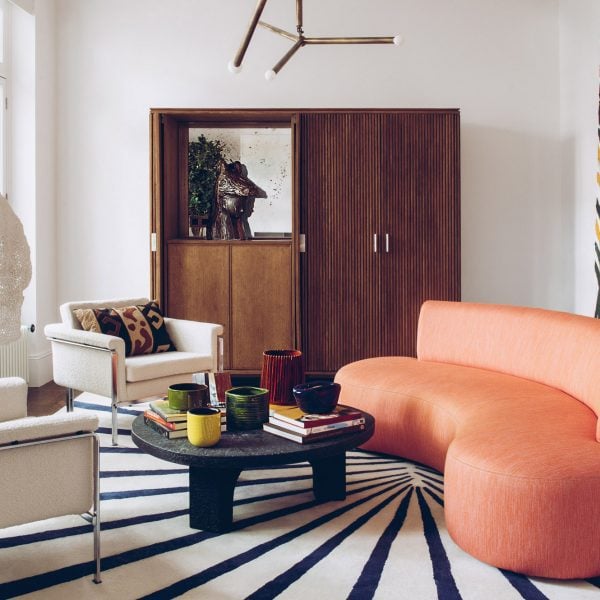Interior design studio RMGB has redesigned a 19th-century townhouse opposite the Chateau de Versailles, using marble and steel to modernise it while “preserving French heritage”.
The home’s new owner recently sold his apartment in Paris to move back into the townhouse, which had been his childhood home, and asked for a careful renovation to take the interior back to its original state.
RMGB restored the home’s damaged parquet flooring and mouldings before adding bespoke and vintage furniture.
Due to its location near the Chateau de Versailles, designers Baptiste Rischmann and Guillaume Gibert had to consider each change carefully.
“The most difficult part of the project was complying with all the requests made by the Architecte des Bâtiments de France, given that the house is opposite the Château de Versailles,” the studio told Dezeen.
“They were very demanding about the aesthetic of the project. We had to stay within a certain logic of preserving French heritage.”
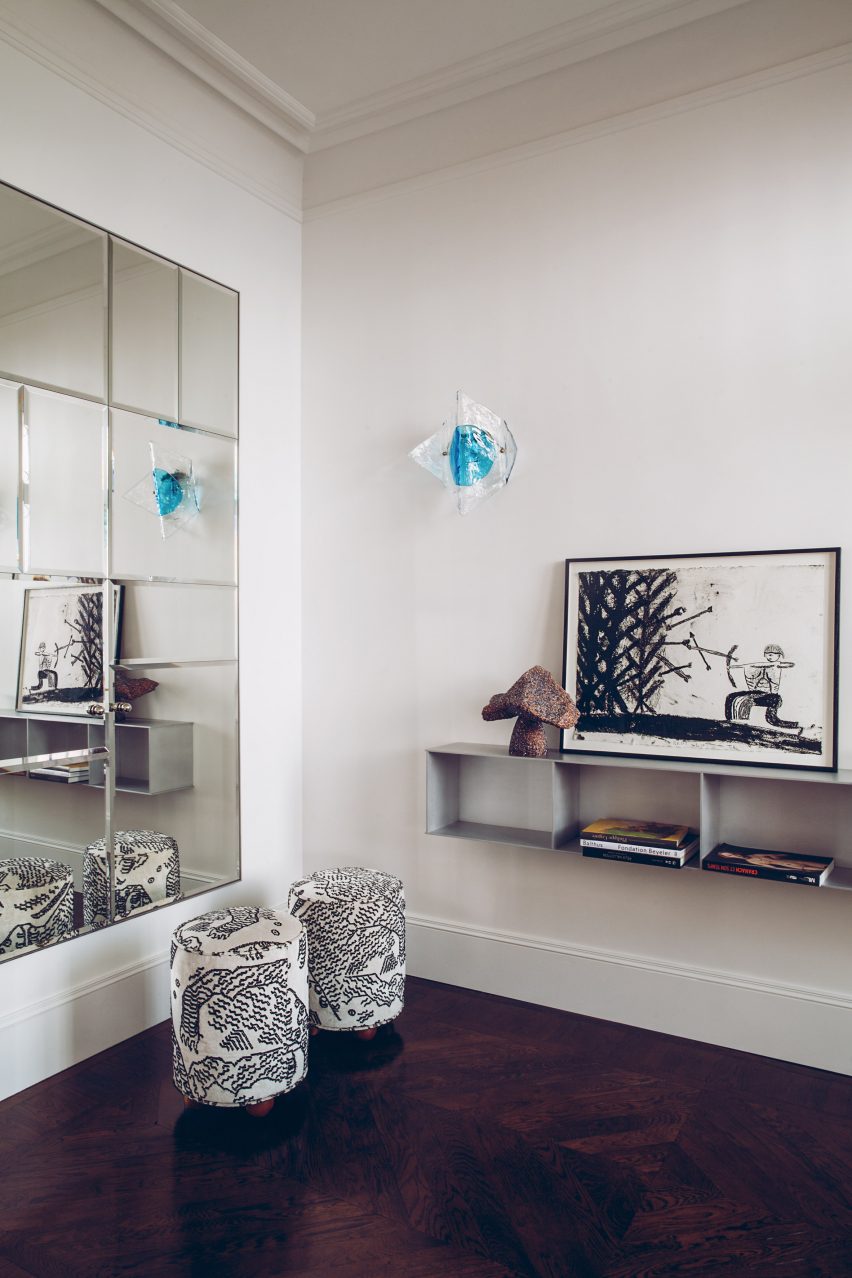
Rischmann and Gibert aimed for the redesign to respect the home’s original layout while giving it a more modern feel.
“The house hadn’t been remodelled for several decades,” the designers said. “We all had to rethink and modernize the whole while preserving a trace of history.”
“Our initial idea was to preserve the original volumes and infuse them with a new aesthetic and tell a new story, a new life for our customers.”
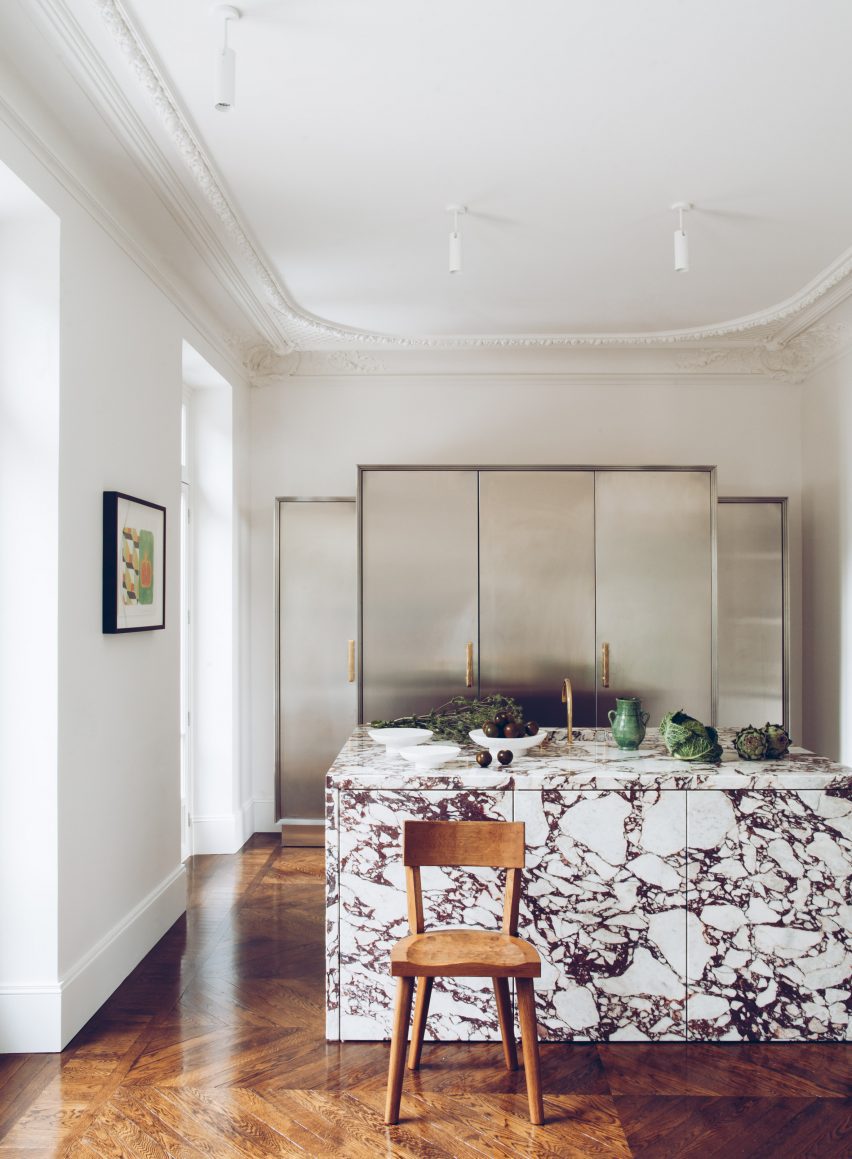
The designers created custom furniture for some of the rooms in the 230-square-metre house. In the kitchen, they added a large stainless-steel cupboard with retractable doors.
Nearby, a large Calacatta Viola marble kitchen island hides the hob and oven, adding a monolithic yet decorative touch.
“The idea was to integrate colors and materials in small touches, such as the pinkish-orange of the sofa or the blue shade of the rug,” the studio said.
“The materials play the same role for us, from the shine of the parquet and its deep hue to the brutality of the kitchen marble. Our aim is always to create balance by contrasting materials.”
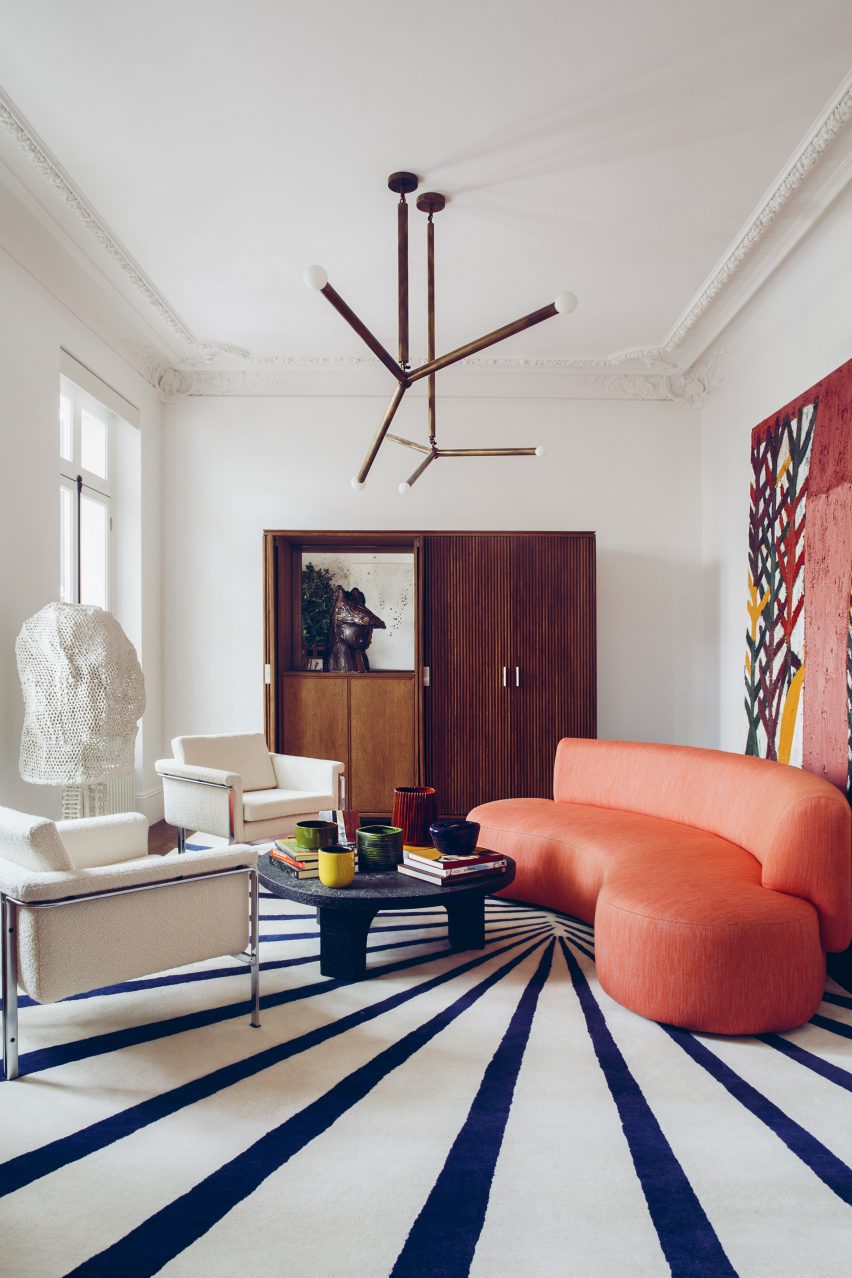
In the living room, Rischmann and Gibert added a ceiling light by designer Nacho Carbonell, a Lek sofa designed by Christophe Delcourt and a pair of 6911 vintage armchairs by furniture designer Horst Bruning.
RMBG chose the furniture for the house based on how the different pieces would work together in terms of both shape and colour.
“We tried to achieve the most harmonious, fair ensemble possible,” the studio said. “At no point did we want to overdo the aesthetics, which meant we had to work more surgically.”
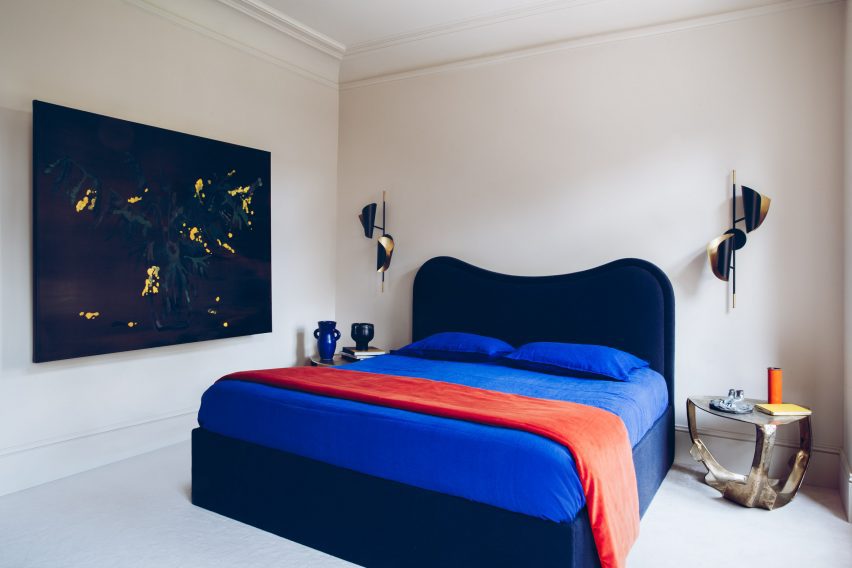
“While the pinkish orange of the sofa adds a touch of acidity, the dark blue of the rug brings a little more classicism to the space,” the duo added.
“The white, taut lines of the dining table temper the more extreme materiality of the kitchen island. Each piece of furniture designed or selected for the project was subjected to a rigorous selection process.”
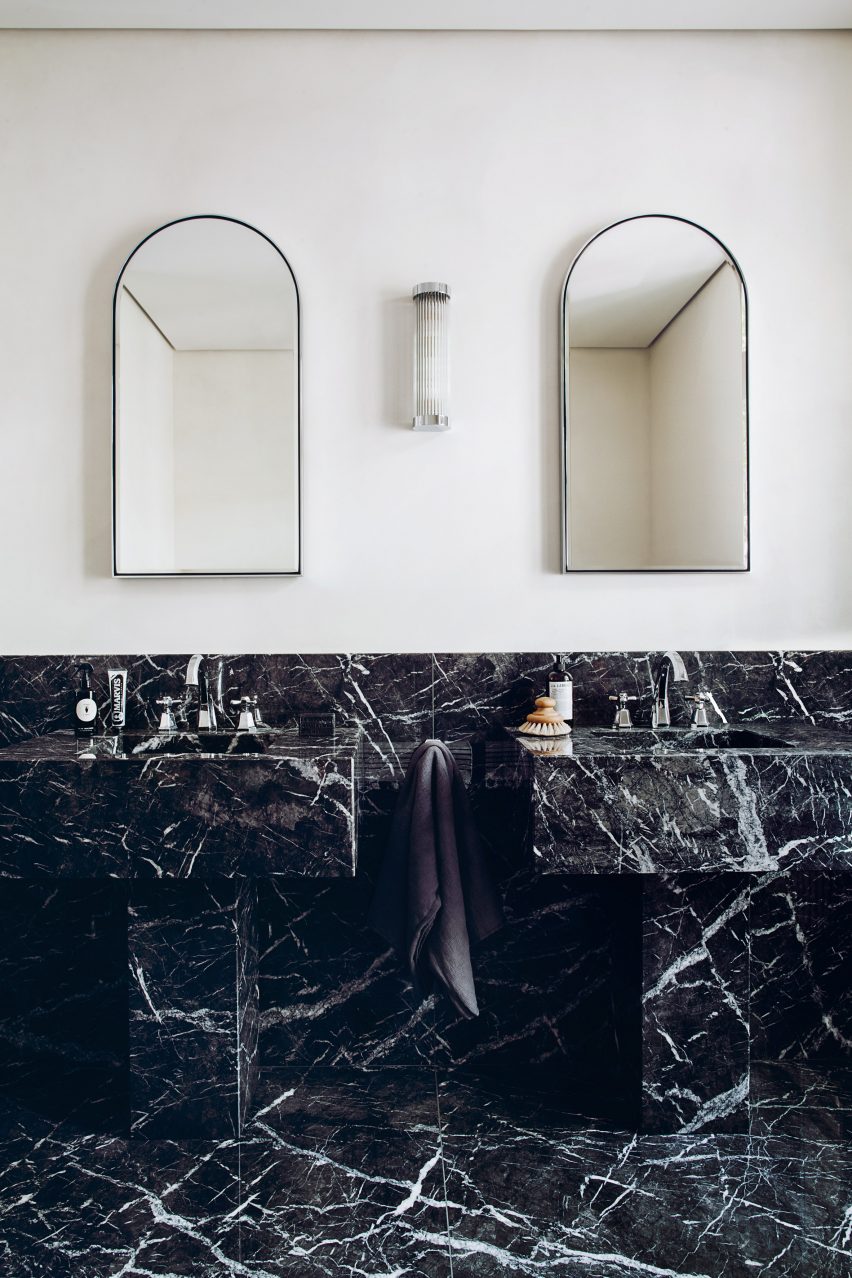
In the bedroom, the studio added a sculptural bed inspired by the work of French designer Jean Royère. The bathroom, like the kitchen, features striking stonework, with a bathtub and basin in Grigio Carnico marble.
“The basins and the bathtub in the parental bathroom in Grigio Carnico marble, for which we revised the design of the classic basins, giving them a more contemporary look with cleaner lines,” Rischmann and Gibert said.
Other interiors with striking marble designs include a Milan apartment with a “majestic wall” and an all-marble extension to a Victorian house.
The photography is by Matthieu Salvaing.

